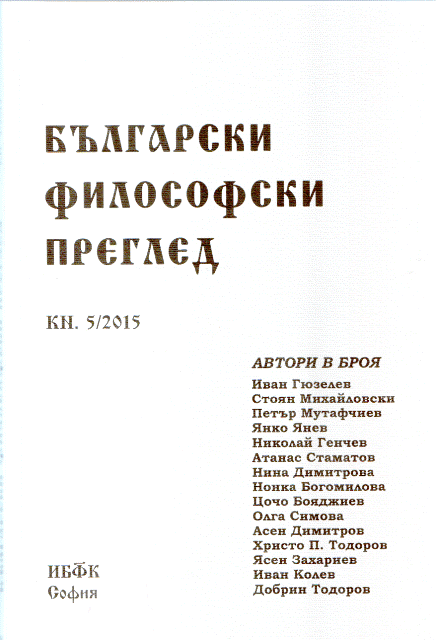И ПАК: КАКВА МИ Е ХЕКУБА ИЛИ ЗАЩО Е ПОЛЕЗНО ДА ИЗУЧАВАМЕ ИСТОРИЯТА НА ФИЛОСОФИЯТА
AND AGAIN: WHAT IS HECUBA TO ME? OR, THE USE OF STUDYING HISTORY OF PHILOSOPHY
Author(s): Tsocho BoyadzhievSubject(s): Philosophy, History of Philosophy
Published by: Институт за българска философска култура
Keywords: philosophy; hecuba; history of philosophy
Summary/Abstract: According to the author, the dilemma of philosophizing “out of oneself” vs. philosophizing “out of tradition” is artificial and forced. Philosophy is a “personal activity”, but philosophizing in solitude is impossible, because the problems that engage philosophy (being, truth, knowledge, the good, etc.) have occupied people throughout the ages. Authentic philosophizing allows us to clearly formulate our view on various properly philosophical problems and makes our answer relevant to the centuries-long efforts of great thinkers of the past to solve that problem. Because philosophical theses must not only be verified, they must be communicable, sharable with others. Tradition is what defines the field of validity of individual philosophical views. Historical-philosophical study is a mechanism for effectively including interlocutors from the past in the present-day philosophical discussion, and hence it is a mode of authentic philosophizing. The purpose of teaching history of philosophy is to cultivate a taste for philosophical problems, to build skills for working with philosophical texts, to present the strategies of rational argumentation, but also to maintain a balance between independent thought and respect for the standpoint of the “other”.
Journal: Български философски преглед
- Issue Year: 2015
- Issue No: 5
- Page Range: 135-146
- Page Count: 10
- Language: Bulgarian
- Content File-PDF

